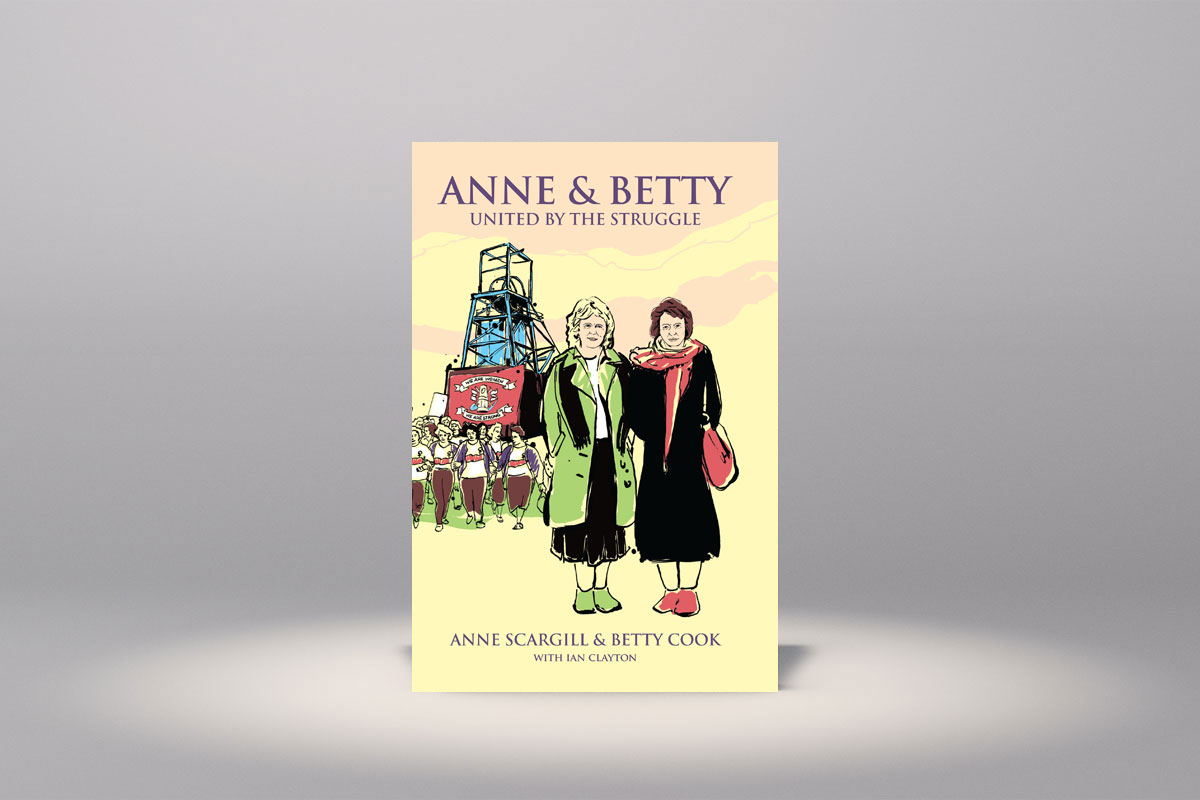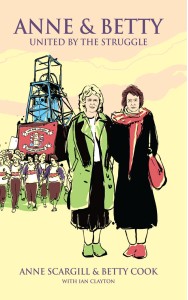In this extract from Anne & Betty, on a march in London during the 1984/85 miners' strike, a letter to the Queen from the women of the mining communities is handed in at Buckingham Palace.
Anne
One of the women at our soup kitchen idolised the Queen and couldn’t understand why she hadn’t stepped in to stop her policemen beating up ordinary working folk. I sat with her one day after half a dozen of our lads had come back from picketing badly knocked about with cuts and bruises all over their faces.
‘I wonder if the Queen knows what they are doing to our sons and husbands?’ she asked. ‘They might be keeping it from her. I think I’m going to write and tell her.’
She wrote a beautiful letter and came into Barnsley day after day asking people to sign it.
From the women of the mining communities
to HM Queen Elizabeth II.
Your Majesty
We, the women of the British mining communities, appeal for your support in our struggle to defend an industry which is crucial to the future well-being of all.
Our husbands, our sons, our fathers – and indeed many of ourselves, have been on strike for nearly five months. Ours is a campaign to save the British coal industry, to preserve the jobs that should be passed on to our children and grandchildren, and to hold together the very lives of our communities.
We are proud of the determination and courage of our men. We support them wholeheartedly. We have, over recent years, seen the horrors of mass unemployment cripple other industries; we have witnessed the slow death of communities dependent on them, and the tragedies that fall upon families and individuals.
We also share with them the intimidation and intense hardship levied against us by those who oppose our fight for pits and jobs. As loyal and law-abiding citizens of this country, we never thought the violence, the denial of civil liberties, the day-and-night harassment employed by police forces from around the nation against us would enter our lives.
But we are determined people with a strong sense of justice.
On the picket lines, in the streets of our villages, and indeed in our own homes, the police have been used to terrify us and try to silence our opposition to pit closures.
Our children go without proper nourishment; indeed, they often go hungry. We care for them and comfort them, but their distress is a constant reminder that this dispute must be settled quickly.
We ask you, Your Majesty, to speak up on our behalf and help us to defend our families, our communities and a source of energy which can only grow in importance as oil and gas reserves diminish over the years to come.
We the undersigned support the above statement.
That letter and petition got over 100,000 signatures in less than a month. On the day of a big rally in London, me and Betty Heathfield marched up to the gates of Buckingham Palace to deliver it to the queen. They put us in a room that wanted a good clean and took it off us. I don’t know whether the queen got to see it. If she did she never bothered to write back. It was a sad day for me in a lot of ways. When I got back home our Margaret told me that Ginger our lovely Airedale had died that afternoon.
Betty
When Anne and Betty Heathfield handed the petition in at Buckingham Palace, we wanted to march past there, but the police wouldn’t let us, saying that there were too many of us for that area. On that rally we remembered Joe Green and Davy Jones, the two lads who had lost their lives on the picket lines early in the strike. A lot of the women wore black armbands and Ann Musgrave made loads of black petals.
Some of the women had never been to London before. Everybody was singing and chanting. We got a few funny looks but most of the people on the route were cheering and clapping us. As we came past Downing Street we went silent. The women took their black armbands off and chucked them down in the road along with Ann Musgrave’s black petals.
We had a forwarding address for Women Against Pit Closures at a little mews house in the middle of London. Jean McCrindle took us there to pick up some cheques. I have never seen as much mail, all in sacks from the GPO. We sat there for ages opening envelopes. Every one had a cheque in and some of the letters were heart rending. There were letters from old-age pensioners on tight budgets who apologised for only being able to send just a few coppers; letters from single-parent families who said things like, ‘We can manage on beans on toast for a few days, use this to buy a chicken.’ There were letters from people in Cambridgeshire, folk who had done well in life but remembered coming from mining families and, of course, ones from political people on the left. But most of all the letters were from ordinary working-class people who knew that we had a just cause, because though they might have been in a different industry, they were in the same boat as us.

